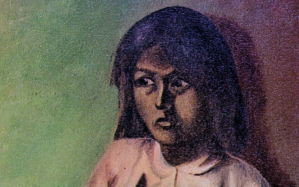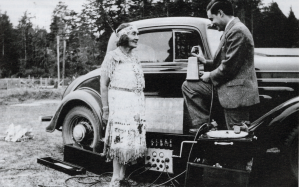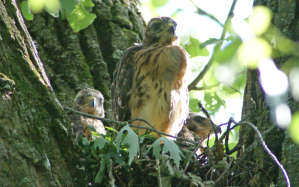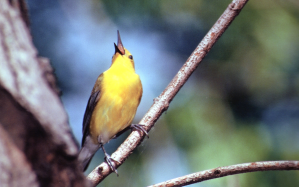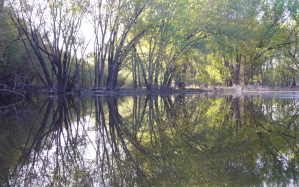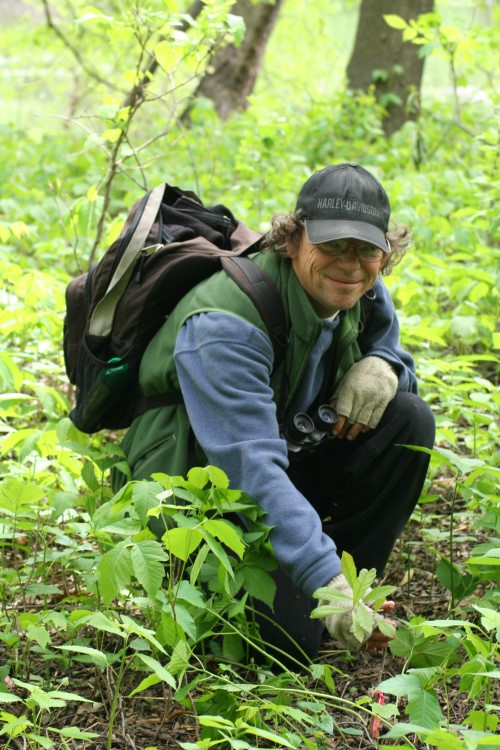(Copyright 2019 by Richie Swanson)
Magazine of History and Fiction Issue 4 December 2019
An excerpt of The Mississippi Behind Us, a novel currently shopped to agents and publishers
The fog swallowed the Mississippi thick as a forge’s smoke, and silent as the slither of the serpent that led me to my fancy and fuss—Spirit Moon, Chief Rattling Wind’s daughter. One moment the river yawned before us, a trail of blue-gold sunlight calling me to the fur post I was to open one-hundred miles upriver. And the next the river was gone, all gray soup, Antoine at our keelboat’s tiller only a ghostly shade, and Captain Keane at the bow, merely a shout, “Pole-men, lift your poles!”
Our hull scraped bottom. We banged a bank, stopping aground, and paddle strokes lapped portside. An invisible Indian called out a hello, “How, how!”
Antoine—the French half-breed who would clerk at my post—answered in Dakota, “We are Soldier Chief, Fifth Infantry!”
Indians spoke a few sharp words I understood only in tone. Don’t trifle with us! We heard them drag canoes ashore and mumble among themselves. “A rattlesnake bite,” said Antoine.
I had in my possession lancets, sweet water and gunpowder, the means Doc Henderson had used to treat bites, and so Antoine and I felt our way up the island, Keane and two troops flanking us. Braves met us sudden, gesturing Brown Bess flintlocks, and a triangle of silk loomed in the fog, redcoat red. Chief Rattling Wind stepped forward, the patch over the hollow socket of his left eye still showing his loyalty to the Brits during the late war. His good eye measured Keane and me cool and then softened at Antoine, whose pap had worked a slew of fur posts in the river’s wilderness before he had been killed with Tecumseh and his warriors fighting General Harrison on the Thames.
A young squaw lay on a blanket, and an older squaw hunched above her, sucking an ankle. The medicine squaw spat blood, snarling at us, her ears hung rich with shell earrings. She chewed a leaf, laid the mash on the bite, and the pretty squaw gazed placid, her doe-eyes almond-shaped and somehow serene, her cheeks and lips slender and gentle.
“Tell them I’ll cut out the swelling,” I said to Antoine. “I’ll draw out the venom with gunpowder and rinse the bite with sweet water.”
The medicine squaw unleashed an onslaught of vituperative Sioux.
“She say your medicine no good for her daughter,” said Antoine. “And you look too much at Spirit Moon.”
Spirit Moon turned her chin. “Set-poles?”
“Yes, we come by keelboat,” said Antoine.
“Hoo-haw?”
“No, not with oxen.”
“Heron Quill is ready to sing,” said the one-eyed chief. “She shall have no whites here.”
The medicine squaw screamed like a wild-wounded hawk, hurrying us off, and I knew the devil would boil her in a cauldron someday, for witch-doctoring a creature so fine and lovely.
But the fog lifted, and we went on, Keane’s boatmen hunching like apes on all fours, pushing their poles from both decks, inching the keelboat up the current. We camped that night only twelve miles above Fort Crawford, and Keane regaled his men. “Remember, we have said good-bye to Dog Prairie, otherwise, the charge is desertion!”
A soldier would think nothing of sneaking back to the little French village for a flask, you see. Keane did not want a spree to delay us, nor did I, for if the American Fur Company opened a post at my location before me, it’d waste all my efforts since I’d left the state of New York. My parents had died of consumption the winter past, and I’d entered the service of an associate of my uncle’s, Trader Charles Debanné. He and I rode a steamer across Lake Erie to Detroit and sailed a sloop to Mackinac Island and then to Green Bay, where Menominee lodges crowded the shore, and Fort Howard looked lonely-hopeless, only a tiny stockade and four small cabins of whites. Yet Doc Henderson had worked bold in the council house, inoculating Indians, his beard jutting salt-and-pepper, gold spectacles low on his nose. He lanced Indians’ arms and tweezed smallpox crusts from a vial. He dropped the virus into their blood, and they eyed him ferocious, bitter, and he flexed his gold-braided uniform and poured a scintillating stare at them. He waved nigh every Menominee to one side of the council house. “The Ojibwa chief at Wolf Lake refused the medicine. His band lost this many.”
Doc opened a palm graceful, directing a handful of Menominee to the other side of the house. “But the Ojibwa chief at Moss Creek told his people to bare their arms, and they lost only this many.” Doc was built like an asparagus stalk, he straightened his joints dreadful. “Is it true Ojibwa are braver and wiser than Menominee? No, I am sure it is not!”
Doc daubed incisions careful as an angel, as if life depended upon the sacredness of his touch, and the next afternoon I saw him sitting on the hospital’s porch, his long fingers gently opening Doctor Thomas’ Medical Manual. I brought him my copy immediate. “I studied at my uncle’s counter by day and by firelight at night,” I said, gazing hungry at Doc. Will you help me learn medicine?
“You know Latin?” he said. “Greek?”
“No,” I stammered. “I had one year of academy and then no money.”
“Well, Jonathan, what do you think of the vaccinations?”
“I wish you could say exactly why the crusts will stop the pox rather than spread it.”
Doc’s oversized Adam’s apple slid up and down rough, and he breathed deep like a philosopher. “You might not need so much Latin and Greek.”
He took me along on medical visits for a month while Debanné waited for more goods to arrive from the east. I witnessed Doc’s examinations, he quizzed me on names of bones and organs, and sometimes I pinched out crusts and held his cedar stethoscope against braves’ chests and counted heartbeats.
When Debanné’s goods arrived, we loaded them onto Mackinaw boats, and Doc accompanied us to the Wisconsin River, paid by Washington to inoculate every band possible. We spent a sleepless night swarmed by mosquitoes in a marshy camp, and a boatman muttered at dawn, “Where’s Doc?”
Doc’s body lay beneath disheveled blankets, mucus and blood running from his mouth to throat.
“The Indians thanked him for his goodness by cutting him,” said Debanné.
I wiped Doc clean, finding no wound
“The croup?” I wondered.
“I’ve never seen anyone die so sudden of the croup,” said Debanné. “If Doc suffocated, you can blame a brave.”
Debanné was outfitting me on his credit, and I said nothing. While our boatmen dug a grave, Debanné drew a knife along Doc’s arm. He pulled silver sutures from Doc’s field kit and grimaced unflinching at the wound. “A trader must train himself out here,” he said to me. “He stitches a cut tight and keeps out rot, braves’ll bring him three times the beaver. He’ll catch the prettiest squaw he wants.”
* * *
We held council with the Winnebago chief Standing Turtle one-hundred miles upriver. He raised a bald-headed war club, glaring at a smoldering black log in the council fire. “We traded with the King. He did not take our land. Now Grandfather Monroe claims the river, and our dreams told us long ago. We live like Long Knives, they steal our homes.” He swung, scattering coals and embers. “No! Americans will not trade here! Their post would become thus!”
We poled to a Dakota village farther upriver, and Rattling Wind greeted us onshore, his eye-patch now black. He led us to bark houses up in a coulee, and I saw my fancy sitting in sunshine on a robe, surrounded by moccasins decorated by quillwork dyed so softly blue it breathed the river-light itself, powdery-blue dusk. She had porcupine quills in her mouth, turtle-shell cups of paints and dyes all around her, and worked a bone needle through an unfinished moccasin, one end of her thread–dried sinew—tied dainty to a toe. The snakebite on her ankle shone bright–a conspicuous kiss of purple, the fangs’ scars surrounded by proud flesh. I wanted to bleed it. I pulled out a lancet and tapped my ankle.
“No, you will not cut,” said Rattling Wind. “Heron Quill looks after it.”
I pulled out gifts, a spool of cotton thread, scissors and an awl with a metal tip. Spirit Moon paid no heed, went on working.
“Hoh’, she does not use things from across the sea or made by Americans,” said Rattling Wind.
Later he shrieked a blood-curdling note inside his council lodge, sang an invocation in Dakota. He held the bowl of his pipe near his heart and its stem to the sky, and Antoine translated for him, “Seven days ago, Rattling Wind started downriver to talk trade with the new Americans at Fort Crawford. He stopped onshore to paint himself, and a rattlesnake bit Spirit Moon. Heron Quill dreamt! She saw a white doctor with a gray beard and gold eyeglasses, and he stood like a tree above the prairie. He moved about beds and dropped poison into Indians.
“Heron Quill saw Spirit Moon’s ankle turn black, coils around Spirit Moon’s neck. We were very near Fort Crawford, we kept away from the Poison Doctor. We brought Spirit Moon home–and Rattling Wind dreamt! He saw the one who hurries his medicine knife in the fog. The day burned clear, and that one slowed his knife. He wore an elk-skin shirt in the prairie below the creek here. He stood with bluestem against his cheeks. He raised his mouth, and Meadowlark sang.”
“Ye!” A bench of ancient braves agreed, elders. “Ye! Ye! Ye!”
Keane and his soldiers left for Fort St. Anthony.
Antoine and I raised canvas tents and commenced building a cabin. We canoed with braves to an island to cut oaks, and muskets popped behind us, signal shots. We paddled back to Rattling Wind’s Prairie. War canoes were scattered onshore, and Dakota warriors carried corpses in robes toward the village, scalps hanging from belts, roach-crests from an enemy tribe, Sac. I hurried into a huddled mass, a grave silence, a soft-steady slurping—the war chief Singing Bow lay on a hide, an ear mangled, his scalp gruesomely torn. Heron Quill was kneeling, pressing a feather quill into his shoulder, a wound black with gunpowder. She sucked the quill, blew blood into a bowl. She squeezed an otter bladder, splashed water into the wound. She mopped her rinse with a mass of duck down, laid a mushroom across the wound, a flattened puffball, and she nudged it downward. She slid basswood twine under and over the shoulder, tied the poultice, and Singing Bow rasped uneven, his demeanor fierce and proud.
Spirit Moon held out a bitter-smelling brew with tender hands, her doe-eyes resolute. Heron Quill dipped in a feather and brushed a yellowish film on Singing Bow’s scalp wound. Braves slid cottonwood poles beneath his hide and carried him toward the coulee, and I started after them and stopped–my nerve unsure, my mind on Doc Henderson’s cataract needle, forceps, Monsel’s salt, silver sutures.
I turned about. I knew too little Sioux to wile fears from Indians as Doc Henderson had, but Antoine could tell them how cataract needles picked out powder-bits, and how laudanum would give Singing Bow a better chance, dulling his pain.
I ordered Antoine at our tents to fetch Doc’s field kit. “Come up to the village and talk Sioux for me.”
Antoine put a jug of whiskey in my hands, “No, I hear the braves talk. They say Soldier Chief Keane and Trader Doctor make the trouble. They stop at the Sac camp on the way here. They tell the Sac they must obey the White Father and stay on the east bank of the river, never the west.”
Yes, Captain Keane had found Sac catching and drying fish and had reminded them of the Treaty of 1804.
“The braves say Singing Bow take a war party downriver and find Sac where the Dakota have winter hunts,” said Antoine. “The Sac tell Singing Bow that Soldier Chief and Trader Doctor tell the Sac they cannot be on the east bank, cannot move from the west shore. The Sac shoot and scalp Singing Bow. The Dakota kill three, maybe four Sac.”
“Tell Rattling Wind that neither Captain Keane nor I struck a single blow at the fight, and why Trader Doctor must clean Singing Bow’s wound,” I said.
“No, master. Singing Bow die, the Indians say your doctor tweezers kill him. It is better Trader Doctor take Grandfather’s milk to Singing Bow and see how Heron Quill fix him up, no?”
I filled a silver flask, hid it in my coat, ascended the coulee, and Rattling Wind shuffled me away from a dense ring of braves barking, biting chunks of dog-liver from a pole—a war dance. I wended my way between bark houses, many squaws sitting outside, mending bullet pouches and war shirts, filling par fleches with pemmican for the warpath.
Singing Bow’s four wives worked silent in front of his lodge. The eldest stirred the bitter-yellow brew, others peeled bark from elm logs. I gestured the flask toward the lodge, and Spirit Moon showed herself through the doorway, very somber. She beckoned me in–Singing Bow lay on a robe, and Heron Quill fingered a bone needle, stitching his earlobe with a black hair. He twitched in pain. His chest heaved, the elm ointment shining around his shoulder wound. The puffball had been removed, a poultice of bark sagged across the wound. More bark wrapped Singing Bow’s skull, and I looked for the rash that heralded rot, for a sunken skull, a fracture.
Heron Quill held a clay cup of the whiskey to Singing Bow’s lips. He drained it, closing his eyes in relief. I pinched fingers above his shoulder, making to pull out a ball and powder bits. Heron Quill thrust her bone needle at me. She clucked harsh, and Spirit Moon glared hostile.
I left barely containing myself. Singing Bow’s skull if broken needed someone to trephine it, and his open wounds, genuine poultices and thorough cleaning–the bark might coax out pus, but he would die first, killed by the festering of debris left inside him.
* * *
Antoine and I stood guard outside our tents, keeping our Hall rifles just inside, the guns the only percussion-cap, factory-bored rifle I’d seen on the river—save the ten in strongboxes Debanné had included in my goods.
Four Dakota braves had been killed, and the grief-cries of their squaws echoed eerie above the river day and night, their wails adding to the horror of their soot-stained faces, their hair hacked, buckskin torn to rags, grief-blood pouring down shins and arms.
Rattling Wind finally came down to smoke, calling outside our trading tent. “Singing Bow dreamt seven Sac scalps!”
“Does he shiver?” I asked. “Sweat?”
“He drinks broth, eats corn mush.”
“Does he show a rash?”
“He dreamt Sioux dancing around Sac scalps.”
I echoed Keane, “Grandfather Monroe says the Sioux must go on hunts, not to war.”
Rattling Wind grunted at our Hall rifles. “Grandfather Monroe traded this to Sac, not to Sioux.”
I held up ten fingers, “Three beaver apiece–but only if Rattling Wind tells his trouble to Colonel Bedford at Fort Crawford and asks Agent Nicholas to make peace.”
Rattling Wind assented, “Ye!”
* * *
I departed with three canoes of Indians, leaving Antoine behind. Spirit Moon sat on a bale behind me, chaperoned by Rattling Wind’s second wife Fox Eye, Heron Quill’s sister, her eyes not as rodent quick or serious deep as Heron Quill’s, younger and brighter for the chief. We stopped that evening at hidden springs, and Spirit Moon carried her bale into camp–nigh two-hundred pounds, its trump-line pressing iron-like into her brow, her spine bending easy as willow. She rolled her bale open to fancywork–moccasins packed in pairs, turtle bags, pipe-and-tobacco pouches, knife-cases, paint-bags, leggings, medicine dresses, medicine shirts–arrow-shapes everywhere, dragon-fly designs, whirlwind figures–everything all Indian, no glass beads, silver or brass trinkets, nothing made by whites.
Fox Eye laid a finger upon a black design, a sort of a god-man with square-like wings. “Sky-boom,” she smiled.
“Thunder,” said I.
“Sky-fire.” Spirit Moon gazed warm, sent a lightning bolt through me. She touched a bowl of maple carved lustrous like teak, the head of a tiny god-man at the top, his eyes in a trance, brandishing a marsupial gawk. “Feast.”
“Six beaver,” said Rattling Wind.
A bowl worth two Hall rifles! I twinkled my eyes all around and glanced downriver. Master Debanné would decide.
And do tell. The night after Agent Nicholas at Fort Crawford “covered the bodies”—gave the Sioux enough blankets, whiskey, rifles, powder and lead to pay for those killed by the Sac—Debanné guided a lantern above the open bale in his parlor, arching his eyebrows elated, “General Clark already has a museum in St. Louis. The President wants one in Washington. Kings and queens covet the relics.”
His Negro came in, bowing, “Squaws at de’ door, suh.”
A din roared outside, drunken braves. We carried pistols into Debanné’s storefront, and Spirit Moon slung down a burden basket, braves’ rifles rattling against puncheons. Two more squaws did the same, keeping guns clear of the spree.
A scream pitched outside. Agent Nicholas helped Fox Eye through the door, her right arm hanging weak, blood pouring from her shoulder.
“I heard her holler,” said Nicholas. “Some brave was raising a knife at her, and I kicked him off. He had traded away his wife’s blankets for whiskey. She grabbed a jug from him, and he beat her. Fox Eye got between them.”
Nicholas lowered Fox Eye to a blanket on the floor, and she trembled terrible, a deep gash in her shoulder, her deltoid stabbed when she had raised her arm in defense. Blood flooded the gash, Spirit Moon swabbed it with a scrap of tanned buckskin. I implored her with a stare to remove it, she fumed. “White chiefs! They give out whiskey!” I asked if Rattling Wind was drunk. “Gone!” she said.
I mopped the gash with a muslin compress from my field kit. A vein spurted blood, severed. I pressed and twisted the compress on it. Fox Eye buckled, bugging her eyes at me, objecting, and Debanné handed down a voyageur’s sash, gaudy colors. Spirit Moon tied it to Fox Eye’s wrist and looped it to me. We fixed the arm tight to her hip, and I bound the vein with a tourniquet stick and suture.
The bleeding slowed, and I relinquished the compress to Spirit Moon. I reached for laudanum, the bottle clanged. Fox Eye screamed against the sound of white medicine. My field kit was lifted from the floor. Nicholas led me to a lantern mounted on the wall, and I measured out the opium and alcohol away from Fox Eye. I feared her vein would rupture anew if her writhing continued, and her shock would grow so deep she’d die. I returned and knelt with the medicine vial, and she rolled her head desperate. I handed the vial to Nicholas and steadied her brow with my hands.
“No.” Spirit Moon glowered at the white man’s vial.
I cocked my chin. Yes.
“Cup,” said Spirit Moon, “bale.”
A relief swelled in me, near uncontrollable. Debanné fetched a red-willow cup from Spirit Moon’s bale, and I poured in the tincture. I brought the woven cup to Nicholas, and he handed it down to Spirit Moon, Fox Eye following the motions anxious. Nicholas spoke Sioux to Spirit Moon, and she leaned close to Fox Eye, repeating assurances. The tincture went down easy.
* * *
Fox Eye slept all night, Spirit Moon murmured prayers in Dakota. I kept watch from the counter, and the compress turned black in candlelight, the blood drying and smelling crusty, not foul. Fox Eye woke at daylight, showing no fever or further hemorrhage. Spirit Moon gave her laudanum again, and I used forceps, picking clots, hairs and dust from the gash. I threaded silver wire through a stitching needle, and Spirit Moon cried, “Yah!” She touched her heart, grimaced as if I had none.
I stitched the edges of the wound together, and Spirit Moon brought a pot of elm from the stove. I said yes to the wild flare of her eyes, and she feathered the yellow salve on the silver sutures with great care, and then her eyes turned as cold as stones in ice, a-studying the wire sutures.
Hooves pounded outside the store—Rattling Wind and braves whooped gay, riding four buffalo ponies they’d bought from a Winnebago village, paying whiskey for them. The chief came in and lowered himself beside Fox Eye, looking hateful at her stupor and the white man’s bandage and adhesive. He wept.
Debanné sent us upriver on a barge of more trade goods, and Rattling Wind weighed each of the white man’s kegs in his hands. He pulled a cork as if to pour whiskey in the river, then his eye turned the impenetrable brown of the muddy current, sinking dark. A dram was allotted every morning and night for every hunter in every winter camp–the trade’s custom, nobody would fetch pelts without it.
Rattling Wind disembarked and mounted a piebald gelding, sleek and powerful. He and braves rode land trails and met our barge each night on banks where he groomed his skewbald ceremoniously, fed him pinches of tobacco and rubbed him lavish with powders and greases—the Mississippi wilderness so sorely lacked horses that four ponies increased his herd by a third.
Twelve engagés poled us on, and Fox Eye sat shaking against a willow backrest, dosed up on more laudanum. Spirit Moon steeped pulverized roots, a prairie parsnip, in a hot-water pouch, and I spied her from the bow as she squatted inside supple buckskin, her raven hair sliding sleek over the secrets of her ears. She poured the yellow decoction into the red-willow cup, and Fox Eye’s face took on a bright, sticky sheen as she drank. Suddenly Spirit Moon laid her hands on my cold-water bandages and pulled them off as if I’d told her to. I hastened over: the shoulder shone tightly red between sutures, draining green and black pus, and Spirit Moon sucked the wound like Heron Quill.
“No!” I said, and Spirit Moon spat pus past my boot and sucked some more. I raised a bucket of water, Spirit Moon gawked inscrutable. I writhed as if I had monsters in my stomach. I groaned abdominal despair, pointing from the pus to my tongue, and I raised Doctor Thomas’ manual, pantomiming. It says rinse and clean, nothing about sucking impurities into your mouth. Spirit Moon went on sucking, and I caught a dead-fish scent, putrefaction. I planted a bucket by Spirit Moon’s feet, a hand on her shoulder. She looked up, pleading, glancing at abscesses forming about the wound. I pulled a sponge from the bucket, mopped the wound, snarled at pus on the sponge. I shook the sponge clean, dowsed it in the bucket, mopped pus until I emptied my bucket.
Pierre Labrie, the engagés’ devant, handed me a wooden cup of tobacco juice. “I spit,” he boasted. “Jean and Piché spit. We all spit.”
Spirit Moon seized the cup and poured the “sterilizer” across Fox Eye’s wound. I made a great show of sponging out the brown gruel and leaf-bits. I mopped and rinsed anew, went through bucket after bucket. Finally I squeezed the abscesses, and the stinking yellow pus oozed out.
Fox Eye brightened her gaze, chewing pemmican. Spirit Moon cracked open venison bones, Fox Eye swallowed the marrow hearty. Spirit Moon brewed parsnip again, and I gave the decoction a glorious look, winking my consent. Yes, if Spirit Moon’s medicine makes Fox Eye sweat, the fever might burn itself out.
The river glossed a calm, steely blue, and the air turned warm, the Good Lord granting Fox Eye four full days of Indian summer. The nights frosted hard, killed the miasma in the air, kept the pestilence out of the wound. The warmth dried the pus, her shivers and shakes ceased.
We landed at the Root River, and a brigade loaded provisions into canoes. Several Indian families and two engagés paddled toward their winter camp, and Fox Eye stood and flexed her wound, swinging her arm magnificent, tossing a tobacco offering after them. Spirit Moon put a cedar top before her, a child’s spinning toy she’d carved. Fox Eye knelt and clasped it. It required a sharp twist and a whip. Her arm drooped. Not yet, if ever.
* * *
We poled home through thin sheets of ice, and shots welcomed us, Singing Bow on the bank in a haze of powder smoke, his shoulder kicking against a recoil, a tall grin heralding his recovery. Rattling Wind forded his ponies flank-deep through jangling ice, and Spirit Moon’s brother leaped in, knees-bent, naked save a breechclout. The lad grabbed the line of the skewbald and walked him onto shore, showing him off to older braves. He put the line in Singing Bow’s hand, and Spirit Moon pressed her fist between her breasts, admiring her brother, her breath so crisp and close to me her vapor tingled my skin.
Antoine translated, “Rattling Wind say Master Prior have medicine that have no demon, no poison! He give in the name of Master Prior his best pony to Singing Bow!”
I stepped off the gangplank, and Spirit Moon bowed her head, too agonizing-mysterious to meet my gaze. I hankered hard, and as Indians gathered, Antoine whispered to me, “You prince already.”
Heron Quill scuttled grim to Fox Eye. Her hands worked at the wounded shoulder. Fox Eye stood intrepid, obedient. Heron Quill threw the silver sutures backward, flung them like ants from a cake. She escorted Fox Eye solicitous into the coulee, and my fancy disappeared docile beside them.
My fancy’s father honored me with a horse—and left me without it.
Her aunt grew strong from my medicine—and was delivered back into savage ignorance.
* * *
The Mississippi froze hard as my ire, and I drove my Canadians at a fury, promising to give them jugs of rum when they finished the post’s buildings.
Rattling Wind’s band departed upriver, Spirit Moon near the head of a long line, carrying a bale, leading a pony and travois. She vanished painstaking slow on snowshoes, and I had naught to say, for the Indians had wintered in the wooded bottoms, miles away, for many generations.
Antoine dug through snow and burned a towering fire. He stripped to trousers in five-degree sunshine and stirred pebbles into thawing mud, mixing chinking for walls. He cocked an ear, grinned gap-toothed. Harness bells, dog teams.
Debanné rose stern from his toboggan, two sorrels with dashing white face stripes behind him, white-stockinged hooves in fluffy powder, eyes frisky and aflame. Debanné looked at me dour, “Standing Turtle conceded his band to the worms, let American Fur open a post!” He smiled sly at the ponies, “But your master knows how we stay strong here. He credits you both mounts at cost. C’est essential! If you are to have your bride, it is the custom, the means!”
I handed the ponies’ reins to Antoine and snowshoed up through the empty coulee alone. I climbed Chimney Rock, a narrow crag of jaundiced limestone high atop a river-cliff. I glassed Antoine, a tiny stick-toy walking the sorrels through the valley seven-hundred feet below. He headed toward wisps of smoke, tepees hidden amid woods. He led the sorrels past Rattling Wind’s pony herd, and I lost him behind islands, saw him walking back alone. He’d staked the ponies outside Rattling Wind’s lodge, announcing my intention, and I thought to pray–and burned with shame. The nearest church–St. Louis. How could I properly ask He who had created the valley below, who had willed it to the fur trade and America, to marry me Indian fashion? I near fell to my knees and called out my wretchedness.
And then Indians poured from Rattling Wind’s island onto a long slough, squaws carrying ball-playing sticks, Fox Eye among them, her arm hanging some. My glass made out neither Spirit Moon, Rattling Wind nor Heron Quill. The latter was talking it out with Rattling Wind, I figured–even if she’d stayed mute at the council at Fort Crawford, I knew she’d say plenty inside her own lodge.
A thickset brave set off lines on the slough, his head strangely red. I glassed it—the rumpled skull of Singing Bow. He squared off teams, and each massed stocky women in front, slender in back. His scream carried nigh sharp as a rifle-clap. He threw the ball high–an orb of baked clay wrapped with hide. The squaws charged it, swinging sticks. Fox Eye fell, snow flying. She bounced off her arm. She raised her stick, the ball in its net. She swung like a demon, the ball sailed in a long arc, and there was Spirit Moon, a feather streamer fluttering from her hair, and she thrust up her stick, caught the ball, ran zephyr-like, and I knew she hadn’t seen the ponies, or gave them no mind, for she ran like a wildcat after a rabbit, her entire being immersed.
Such was my punishment. The game went on until the sun set, and Fox Eye ran in shadows, flinging that ball with God’s grace. It ate at me. He worked His miracles, no matter that Heron Quill doctored the arm, listening to a medicine stone. No matter that she sang to the Thunder and Water Spirits and served up potions from an otter bag.
I fussed inside, a bloated polecat oozing oils in my belly. Spirit Moon ran like the devil, knocked three squaws sprawling flat. Caught the ball from Fox Eye. Whipped it past the goal, their team cheering like the Fourth of July.
Everyone made for home, and Spirit Moon and Fox Eye tarried, commiserating, gesticulating sticks, blind to all but their play. They finally vanished up into Rattling Wind’s island. The snow in the valley grew gray. Trees turned black. The smells of roasting game wafted up, and the dark forms of wolves crept down the opposite bluffs, some braves waiting with bows and rifles, others playing flutes somewhere, reedy love songs.
Spirit Moon’s brother came out from Rattling Wind’s island, leading the sorrels. He added them to Rattling Wind’s herd!

